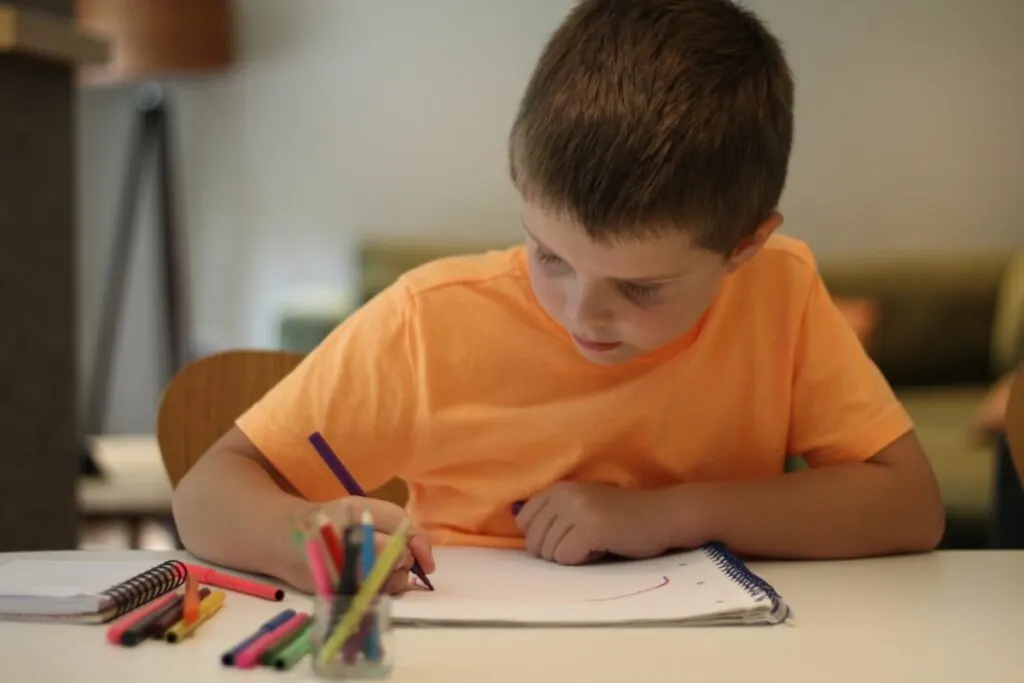Many families choose to homeschool because it provides an alternative way of learning that helps kids to thrive.
Traditional schooling doesn’t work for every child, and if you think homeschooling would be better, it is worth looking into.
There are many types of homeschooling methods you can go for, and one of the most well-known is classical homeschooling. But what exactly does that mean, and how do you teach it?

If you want to know more about classical homeschooling, then you have come to the right place.
We have put together a guide to classical homeschooling, which includes tips and tricks. So read on to find out everything you need to know.
What Is Classical Homeschooling?
If you are new to the world of homeschooling, you might be wondering what classical homeschooling actually is.
Well, this style of homeschooling is all about teaching your children how to think rather than what to think.
Studying using this method involves students studying and covering topics comprehensively, forming their own opinions about those topics, and then taking those opinions to others in a persuasive, controlled, and clever debate style.
The concept of classical homeschooling goes all the way back to the ancient Greeks and Romans, and those concepts were later refined during the Middle Ages.
It was during the Middle Ages that the term ‘trivium’ came from, but we will get into that in more detail later.
The Trivium
Created in the Middle Ages, the Trivium is all about grammar, logic, and rhetoric. In classical homeschooling, these three subjects are divided across three to four years of education.
If children take a bit longer or they excel ahead of schedule, that is fine, you can adapt the Trivium to suit your children’s needs.
Let’s take a closer look into the Trivium now.
Grammar
Also known as language, grammar covers grades 1 to 4. These grades are the perfect time to teach children all about language and how to use that language.
They are fascinated by words and are more likely to absorb them during this stage in life.
In these grades, children need to be taught the skills of reading, writing, and basic maths, and it is also advised that you introduce them to the basics of history, science, and the arts.
In the grammar stage, kids are equipped with the basics of knowledge, and these basics will allow them to build up more complicated opinions and thoughts.
This stage also teaches rote memorization of important base facts and rules.
Logic
The next stage is logic, also known as thought. This stage is covered between grades 5 and 8.
At this stage in development, children are able to take the ideas they have learned and start challenging them rather than just accepting them.
It is during the logic stage that critical thinking and analysis are introduced to your children.
As they have spent so much time laying down a strong foundation in the grammar grades, they will now be able to take the knowledge they have learned and apply and connect it in a systematic way.
Rhetoric
The final stage is rhetoric, also known as speech. This stage is generally covered between grades 9 and 12, but if your children are advancing quickly, it is fine to start teaching this stage as long as grammar and logic have been mastered.
It is during this stage and at these ages that children are eager to express their ideas, and the rhetoric stage teaches them to do this logically.
It also teaches children to articulate their ideas in a more persuasive and eloquent way.

Pros And Cons Of Classical Homeschooling
While this method of homeschooling has been largely respected across history as being successful, there are, of course, pros and cons in teaching it to your own children.
Some kids really take to classical homeschooling and the Trivium in a natural way, while others don’t really like it at all.
Let’s take a look at the pros and cons now.
Pros
There are many fantastic pros when it comes to classical homeschooling. Here is a breakdown of some of the best things that your kids will get out of this method:
- This method focuses on the foundations of learning; it equips your children for later life through the skills they pick up in classical homeschooling.
- This method is incredibly rigorous and comprehensive in the base of knowledge.
- It drastically improves your children’s reading, writing, and logic skills.
- Each part of the Trivium perfectly suits the natural stages of child development.
Cons
There are, of course, cons that come with classical homeschooling, but you shouldn’t let them put you off in every case. Some children really take to classical homeschooling, while others don’t.
Let’s take a closer look at the most common cons associated with classical homeschooling:
- You will need to provide extra parental assistance in comparison to other homeschooling methods.
- This method doesn’t suit more free-flowing or creative minds, so may not be effective for some children.
- Some students and parents find rote memorization, narration, and dictation to be difficult and repetitive. It is not unusual for children to find the classical homeschooling method and the Trivium boring.
Core Subjects
Classical homeschooling does not have a set curriculum, nor does it have core subjects, but there are a few subjects that are suggested you should teach.
These subjects align with the purpose and methods associated with the Trivium and will make teaching in a classical format much easier.
The recommended core subjects include:
- Math
- Science
- History
- Science
- Foreign Languages
- Writing & Language Arts (grammar, writing, literature, and spelling)
You can teach other subjects if you wish, but if you really want to immerse yourself and your children in classical homeschooling, these are the best subjects to teach as the core subjects.
They will drastically help in training your children in classical homeschooling techniques and the Trivium.
Tips & Tricks
Classical homeschooling is a lot to get into, especially if you are new to homeschooling in general.
But even if you lack the experience, that doesn’t mean you can’t successfully teach your children this homeschooling method.
Below, you will find some tips and tricks to take into consideration when it comes to teaching your children classical homeschooling.
It’s Not About Jumping Through Hoops
While there are a lot of targets to be met, it is important to remind yourself and your children that classical homeschooling is not about jumping through hoops.
It’s okay if your kids don’t finish all of the work in one sitting, and it’s okay if they don’t hit their targets straight away.
Every child learns differently, even those who thrive in more systematic ways of learning. Keep this in mind when you are teaching.
Keep Things Simple
The best thing to do when you are teaching classical homeschooling is to keep things simple. This means you just look at the skills your children already have, and you adapt from there.
You don’t need fancy resources, you don’t need over-the-top lessons, just work with what you already have.
Encourage Structure & Organization
Teaching your children structure and organization early on will really help them later on in life. It encourages routine and even independence.
Having a good routine and good structure means that you can focus more on learning.
Having a consistent schedule not only benefits your kids, but it also benefits you too. It gets rid of chaos and stops you both from being distracted.
Quality Over Quantity
This is true in practically every scenario, and classical homeschooling is no exception.
You want quality over quantity; you want your children to deliver quality work, so if that means they work a bit slower, that’s okay.
It is always better to do a few things really well rather than lots of work to a poorer standard. As time goes on, your kids will naturally be able to produce more quality work, so don’t be discouraged if they don’t start out this way.
Focus On What Is Most Important During Each Stage
If your kids are still in the grammar stage, don’t worry about the logic or rhetoric stages.
They don’t matter until your children understand the fundamentals of grammar. Whatever stage you are currently on, focus on that and only that!
This takes the pressure off and gives both you and your children the ability to focus on the task at hand rather than worrying about what they need to learn in the future.
Setting up the foundations in each stage means your kids will be more successful in the later stages.
Conclusion
Classical homeschooling has been around for a very long time, and it has proven again and again to be an effective way to teach kids.
The skills and knowledge they learn using this method can really help them later on in life, and it encourages them to think critically and absorb facts.
Use the tips and tricks and everything else we have provided in this guide to get started on classical homeschooling today.
Next up: Learn about Montessori homeschooling here.
- Homeschooling In High School: Pros And Cons - February 24, 2024
- How Do I Withdraw My Child From School To Homeschool? - February 23, 2024
- How To Not Go Crazy Homeschooling Kids: A Guide For Frazzled Parents - February 22, 2024









Leave a comment